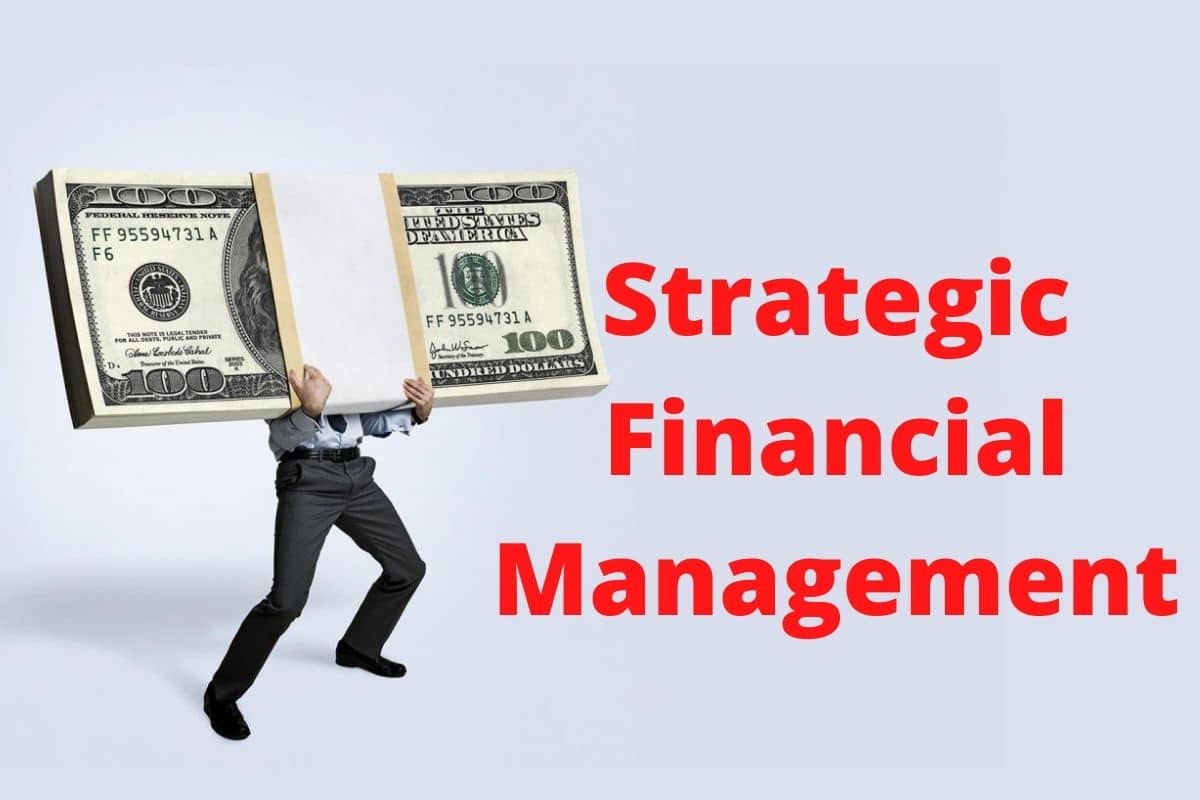Starting a bank is a complex and highly regulated process, but it can be a rewarding endeavor with the correct understanding and careful planning. Understanding the steps required for opening a personal bank account, establishing a business bank account, or exploring Internet banking choices is critical. Furthermore, while founding a bank with low funds may appear difficult, it is not impossible. We’ll explore how to start a bank account for a business online, and how to start a bank with no money. You can successfully traverse the process and start your quest to construct a profitable bank by following the appropriate methods and utilizing accessible resources.
How to Start a Bank
Starting a bank is a complex and highly regulated endeavor that requires careful planning, extensive knowledge of the financial industry, and adherence to legal and regulatory frameworks. Here are the key steps to consider when embarking on the journey of starting a bank:
#1. Research and Planning
Before diving into the process, conduct thorough research on the banking industry, market demand, and competition. Identify your target market and develop a comprehensive business plan outlining your vision, mission, and strategies for sustainable growth.
#2. Capital Requirements
Banks typically require substantial capital to operate, as it serves as a foundation for financial stability and credibility. Determine the minimum capital requirements set by regulatory authorities in your jurisdiction and ensure you have adequate funds to meet these requirements.
#3. Compliance and Regulatory Frameworks
Familiarize yourself with the legal and regulatory frameworks governing the establishment and operation of banks in your jurisdiction. Obtain the necessary licenses, permits, and approvals from regulatory bodies such as the central bank or financial authorities.
#4. Form a Team of Experts
Assemble a team of experienced professionals who can navigate the complexities of the banking industry. Seek individuals with expertise in finance, compliance, risk management, and technology to ensure a well-rounded skill set within your organization.
#5. Technology and Infrastructure
Establish a robust technological infrastructure that supports efficient banking operations and ensures data security. Also invest in reliable banking software, secure network systems, and online banking platforms to cater to the needs of your customers.
#6. Risk Management
Implement comprehensive risk management strategies to identify, assess, and mitigate potential risks. Develop internal control systems, establish risk management committees, and adhere to industry best practices to maintain the stability and security of your bank.
#7. Customer Acquisition and Services
Design attractive products and services tailored to the needs of your target market. Focus on delivering exceptional customer experiences, utilizing digital channels, and offering innovative banking solutions to stay competitive in the market.
#8. Marketing and Branding
Develop a strong brand identity that resonates with your target audience. Implement effective marketing strategies to create awareness about your bank’s unique value proposition and attract customers.
#9. Compliance and Reporting
Ensure strict compliance with financial regulations, reporting requirements, and ongoing supervision from regulatory bodies. Establish robust internal controls and systems to monitor transactions, prevent money laundering, and detect fraudulent activities.
#10. Continuous Learning and Adaptation
Keep up to current on industry trends, technology breakthroughs, and regulatory changes. Continuously invest in the professional development of your team and adapt your strategies to meet the evolving needs of the market.
Remember, starting a bank is a long-term commitment that requires dedication, resilience, and continuous improvement. By following these steps and seeking expert advice when needed, you can lay a strong foundation for your bank and contribute to the financial ecosystem while serving the needs of businesses and individuals alike.
How to Start a Bank Account
Opening a bank account is a critical step in managing your personal or corporate money. It offers a safe place to deposit and manage your assets, conduct transactions, and lay a financial foundation. Begin by exploring several banks and their account possibilities before opening a bank account. Once you’ve decided on a bank, gather the necessary documents, such as proof of identity and proof of address, and go in person or apply online. To activate your account, fill out the relevant paperwork, supply the requested information, and make an initial deposit. Finally, become acquainted with the account’s features and use them appropriately to reach your financial objectives. Finally, become acquainted with the account’s features and use them appropriately to reach your financial objectives.
How to Start a Bank Account for a Business
Starting a bank account for your business is essential for managing your finances effectively and separating personal and business expenses. Begin by researching banks that offer business accounts and comparing their features and fees. Gather the necessary documents, such as your business license, employer identification number (EIN), and articles of incorporation. Visit the chosen bank in person or apply online, providing the required information and documentation. Fill out the application forms accurately and make an initial deposit to open the account. Once your business account is active, keep track of your transactions and maintain proper bookkeeping to ensure accurate financial records.
How to Start a Bank Account Online
Starting a bank account online offers convenience and simplicity in the digital age. Start by choosing a reputable bank with online account opening options. Visit their website and navigate to the account opening section. Fill out the required information accurately, providing details about your personal and business information. Submit any necessary documents electronically, such as identification and proof of address. Review the terms and conditions of the account carefully before finalizing the application. Make an initial deposit electronically using a secure payment method. Once approved, you will receive confirmation and access to your online bank account.
How to Start a Bank With No Money
Starting a bank with no money may seem challenging, but it’s not impossible. Begin by conducting thorough research on the banking industry and regulations. Develop a comprehensive business plan outlining your strategies for growth and profitability. Explore potential partnerships or investors who may be interested in funding your bank. Consider applying for grants or loans specifically designed for entrepreneurs starting financial institutions. Focus on building a strong network and establishing relationships with key stakeholders in the industry. Leverage technology and innovative solutions to reduce operational costs. With determination, creativity, and strategic planning, it’s possible to start a bank with limited or no initial capital.
How Do I Open My Own Bank?
Starting your own bank is a complicated and highly regulated process that demands careful preparation and execution. To begin, you must conduct extensive research on the banking industry, including legal requirements and regulatory frameworks. Following that, you’ll need to obtain the essential licenses and permits from the appropriate authorities. This entails submitting extensive applications as well as adhering to tight financial and operational standards. Furthermore, you must generate enough funds to meet the regulatory authorities’ minimal standards. Once your bank is legally created, you’ll need to work on developing a solid infrastructure, acquiring competent employees, and putting in place comprehensive risk management procedures. Establishing trust and credibility with consumers is critical for your bank’s long-term success.
Can a Person Start His Own Bank?
Starting your own bank as an individual is a daunting task that demands significant resources, knowledge, and regulatory compliance. While a person can form a bank, the procedure is complicated and highly regulated. You must meet severe requirements, such as obtaining the proper licenses, meeting capital requirements, and demonstrating a thorough understanding of banking operations. Furthermore, creating a bank necessitates a considerable financial investment as well as the skill to negotiate the complexities of the banking market. Thorough research, competent counsel, and assembling a qualified team to guide you through the process are all essential.
How Much Do I Need to Open a Bank Of?
The amount of capital required to open a bank varies depending on various factors such as the jurisdiction and regulatory requirements. In general, starting a bank requires a substantial financial investment. The minimum capital requirements can range from hundreds of thousands to millions of dollars. It is important to note that the capital requirements are not limited to the initial investment, as ongoing operational costs and maintaining a certain level of capital adequacy are also crucial. Additionally, the specific business plan and scope of the bank will also impact the necessary capital. To accurately determine the amount needed, it is advisable to consult with regulatory authorities and financial professionals with expertise in the banking industry.
How Do Small Banks Make Money?
Small banks collect revenue from a variety of sources in order to maintain their operations and profitability. One major source of income is interest on loans and mortgages made to individuals and businesses. These loans accumulate interest, which contributes to the bank’s income. Furthermore, tiny banks frequently provide a variety of deposit accounts, such as savings accounts and certificates of deposit, which earn the bank income. Fees and charges for services like account maintenance, ATM use, and overdrafts all contribute to revenue. Some banks may conduct investment operations or offer wealth management services in exchange for fees or commissions. Overall, tiny banks generate money and remain financially sustainable by combining interest income, fees, and other financial services.
How Profitable Is Owning a Bank?
Owning a bank can be a very lucrative business, but it depends on a number of things. The profitability of a bank depends on its size, business strategy, effectiveness, and market circumstances. Effective cost, risk, and customer management can result in significant profitability for well-run banks. However, profitability might change depending on elements including interest rates, the caliber of loans, the state of the economy, and competition. It’s crucial to remember that operating a bank demands a large initial investment, regulatory compliance, and continuing operational costs. Before entering the banking profession, one should carefully assess the risks and obligations that come with operating a bank, even though it can present rich prospects.
Is It Illegal to Start a Bank Run?
Starting a bank run is generally not illegal, as it is a result of customers’ actions. However, intentionally inciting a bank run through false information or fraudulent means can be considered illegal. Bank runs can have severe consequences for the financial stability of a bank and the overall economy, which is why governments and regulatory authorities take measures to prevent and manage such situations. It is crucial for individuals and institutions to act responsibly and ethically in their financial dealings to maintain the trust and stability of the banking system.
How Much Do Bank Owners Make a Year?
Depending on the size and profitability of the bank, the owners’ income can vary greatly. Generally speaking, capital gains, dividends, and bonuses can all generate sizable profits for bank shareholders. The precise amount, however, may vary depending on the bank’s performance, market circumstances, and specific ownership arrangements. The management of the bank or their involvement in other businesses may also provide the bank owners with extra sources of income. It’s crucial to remember that owning a bank entails risks and obligations, and prospective profits should be assessed in the context of the bank’s overall performance and stability.
How Do I Buy a Bank?
A bank purchase entails numerous crucial processes. First, do extensive research to comprehend the banking sector and legal needs. Make a list of potential banks to buy and assess their financial standing, assets, and liabilities. Obtain the required funding and create a thorough business plan. In order to negotiate the challenging purchase process and adhere to regulatory requirements, consult with legal and financial consultants. Negotiate the price, terms, and conditions of the purchase agreement. To ensure a smooth transition for customers and staff, finish the due diligence process, get regulatory permissions, and conclude the acquisition.
FAQs
How can I start a private bank?
To open your bank, you will need to obtain a business license and apply for a banking charter from the state. Before you begin operations, you must ensure that you are officially registered with all of the required government institutions.
Is it simple to start a bank?
Starting a bank necessitates extensive expertise, industry experience, and a great deal of patience and dedication to navigate the charter and FDIC approval processes.
What is a private banking account?
A private banking account is often one or more accounts with at least $1 million in assets. Due to the special needs of these high-net-worth individuals, financial organizations, known as private banks, offer a variety of financial services in a single location.
Related Articles
- WHAT IS A COMPLIANCE OFFICER? Duties, Qualifications, & Salary
- BEST BANK FOR SMALL BUSINESS IN 2023
- COMPLIANCE AUDIT: Definition, Types, Process & Why It’s Necessary
- HR COMPLIANCE: What Is It, Software, Training & Importance
- COMPLIANCE MANAGEMENT SYSTEM: Definition and Importance






